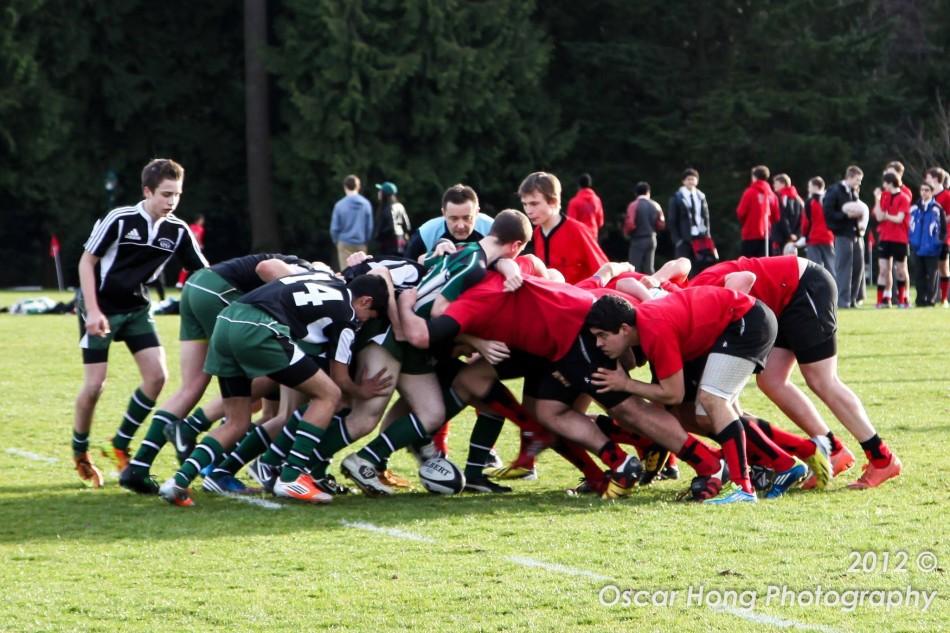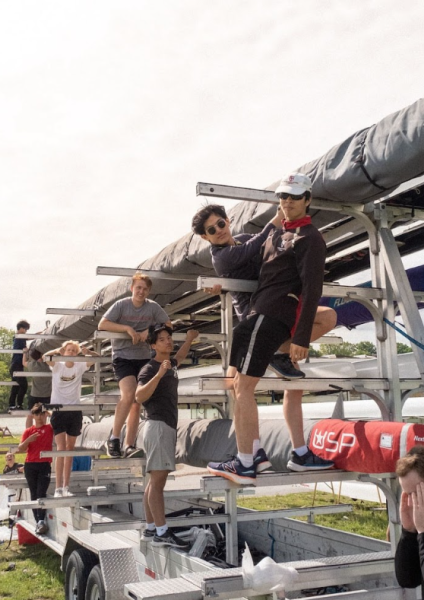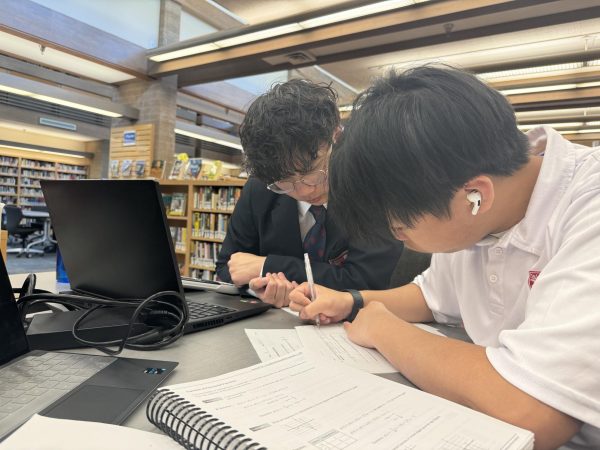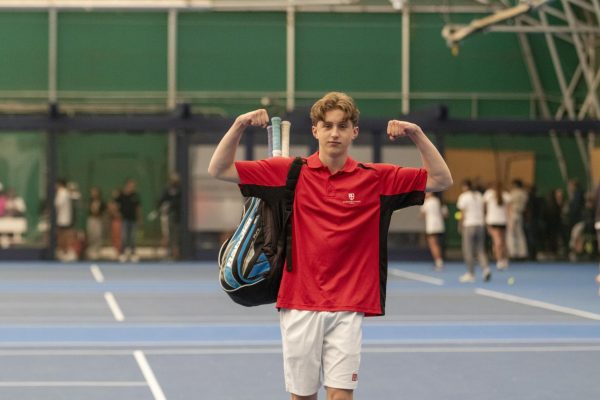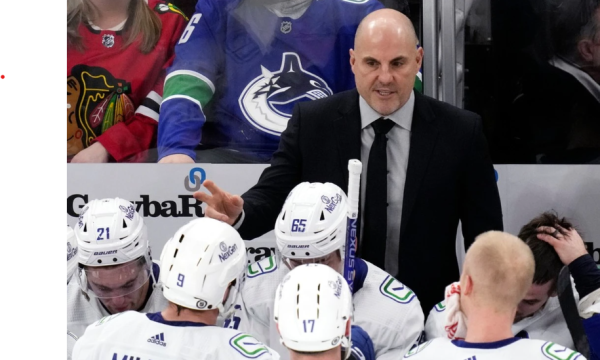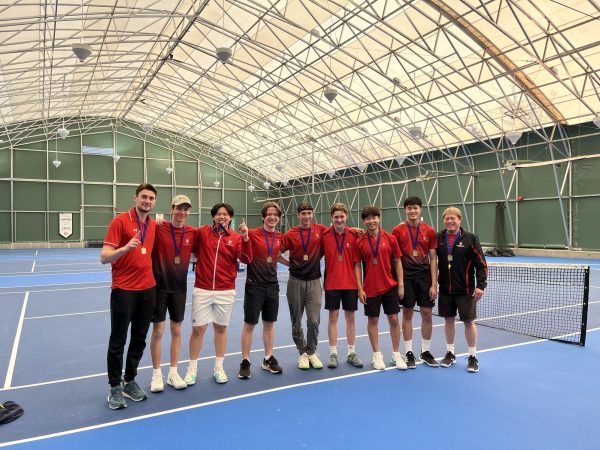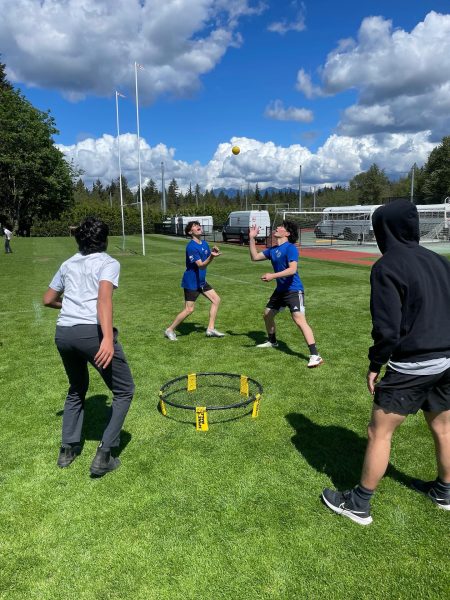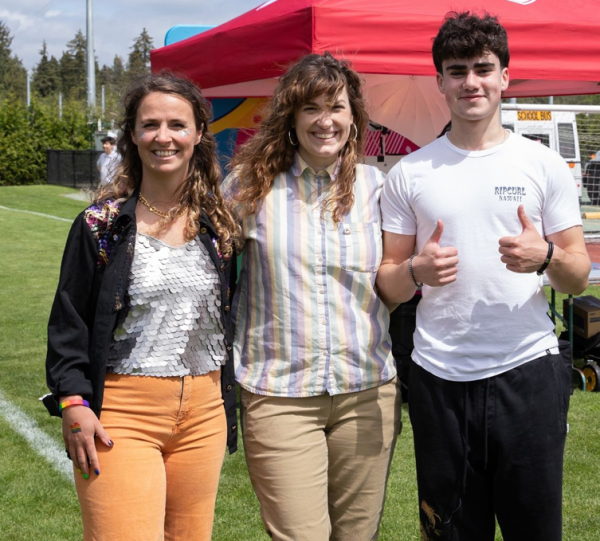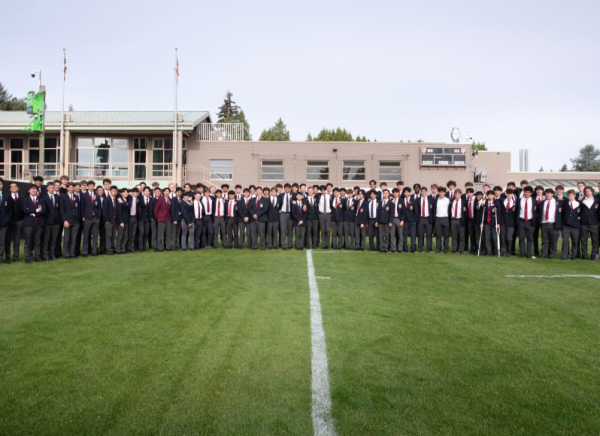Our Sports Culture: Ups and Downs
With over 80 years of compulsory sports, has athletics strengthened our school’s health, or has it debilitated it?
An investigative journalist, Amanda Ripley, wrote “The Smartest Kids in the World,” which tells the tale of Tom, a high-school student from Gettysburg, Pennsylvania. In his senior year, Tom chose to spend his time studying in Wroclaw, Poland. The country is a surprising educational success story, having raised many students’ test scores from significantly below average to significantly above average. Nowadays, Polish teens outscore American teens in math and science, even though Poland spends, on average, less than half as much per student compared to the US. Not surprisingly however, the school in Wroclaw was highly inclined towards academic success rather than athletic achievement.
Looking at our own school, St. George’s pays a great deal of attention towards athletics. Hence, book-worms can’t judge jocks by their grades because athleticism has a proclivity of being placed high on the priorities list. But, as our school’s Sports Captain, Marc Levin, mentioned, sports don’t really contribute much to a student’s university application. While competitive teams might be enjoyable and advantageous in high-school, their contributions to your future professional careers are mostly mental; building strong character and fostering good spirit are a few of the many benefits.
Sports culture is engraved in St. George’s like nowhere else. In the Senior School, students’ blazers glitter with their vast collection of athletic pins. As a swimmer myself, having competed on St. George’s swimming ever since Grade 7, as well as on a national level outside of school, I can rattle on for hours about the benefits of high-school sports, or at least I used to be able to. As I climbed the high-school hierarchy, with only two years left, time has become more precious by the second. Suddenly, the commitments I once had became time consuming and almost drudgery. With so many critical life decisions, such as selecting the appropriate courses for my future, I became lost as to whether or not the pool is draining me or helping me absorb.
Suzanne Dill, Head of Senior Athletics at St. George’s School, comments on the school’s sports culture. “Generally speaking, the culture of sport and athletics is well aligned with the overall culture of the school. I don’t see a lot of differences, I think our school generally holds high expectations and the boys who come to our school have high hopes in terms of their contributions to the community, whether that might be a sports team or in the classroom.”
Additionally, she added, “I believe that with student’s high hopes that there can come a lot of pressure. But even with the pressure, I think that sports at our school contributes very positively to our overall school culture, I look at our school as a co-educational opportunity; I think that if a boy choses to be a part of a competitive sports team, he’s giving himself another classroom, another learning opportunity.”
Participation in sports provides many benefits to children, teenagers, and adults. Sports provide opportunities to learn life lessons, such as how to work together toward a common goal, follow directions, and balance multiple priorities. Despite the risks of injury, the benefits of sports are great and worthwhile. Establishing a healthy body at a young age can change a person’s attitudes and work habits. Coming from a background where I used to swim 14 hours a week, all year round, I’ve really learned to work hard and grind through adversities. Having survived so many intense Winter Break practices, I’ve learned that I can accomplish anything, and that no adversity should be harder than the training.
“As an athlete, I did not fully appreciate the skills I had developed through my involvement in sports that were transferable to the rest of the world.” Mrs. Dill remarked, “I believe that experience with goal setting is certainly a huge benefit and most athletes get involved in sports because they want to achieve something. I think that having goals is fantastic, and from that, being able to break down goals and achieve them step by step is something that we have to do in order to be successful in any aspect of life.”
However, traumatic injuries, such as concussions, fractures, and joint injuries that cannot be foreseen or prevented, can leave an athlete sidelined for weeks to months. This can have negative effects both physical and psychological effects. Quite often, a high-school student’s identity is based upon participation in a particular activity, usually a sport. When an injury is sustained, whether it is caused by overuse or by a traumatic event, it can be devastating to the teen’s mental health because he can no longer do his favourite activity or contribute to the team. In non-contact sports such as swimming, an athlete can feel ravaged when their times aren’t improving. When others appreciate your contributions to the community, we often gain a sense of belonging, which is cultivated by the fact that we can help others or make the group better. Loss of that power to give can mortify us, it can also hurt our performance in other sports, school subjects, and relationships.
Mrs. Dill comments on the negative impacts a sports commitment can have.
“Being too focused on the outcome can really hurt a student. If students are too focused on an outcome and then don’t achieve that outcome, they are often left with nothing. I believe that this loss can occasionally cause them to lose their appreciation for the process and that really ruins their ability to become a successful athlete and can cost them a lot of the opportunities to learn from sport. Setting a goal, creating a plan that has clear progressions and dedicating yourself to the process is how people find success and success doesn’t always mean achieving our initial goal. Success is about improvement and learning.”
Similar to everything we pursue in life, sports have their rewards and their repercussions. As students, the key is to balance out our time schedules. We should try our best to make the most out of athletics’ rewards and to avoid most of its consequences. Staying healthy and fit will keep one energized, but competing while injured is rather debilitating and difficult, studying while injured is no different. As long as students stay safe, healthy, and positive, their academic and athletic life becomes comprehensive and unrestrained.

Paul is currently a Grade 10 at St. George's School. Working as the News Editor for The Creed, he is responsible for editing and refurbishing articles...



